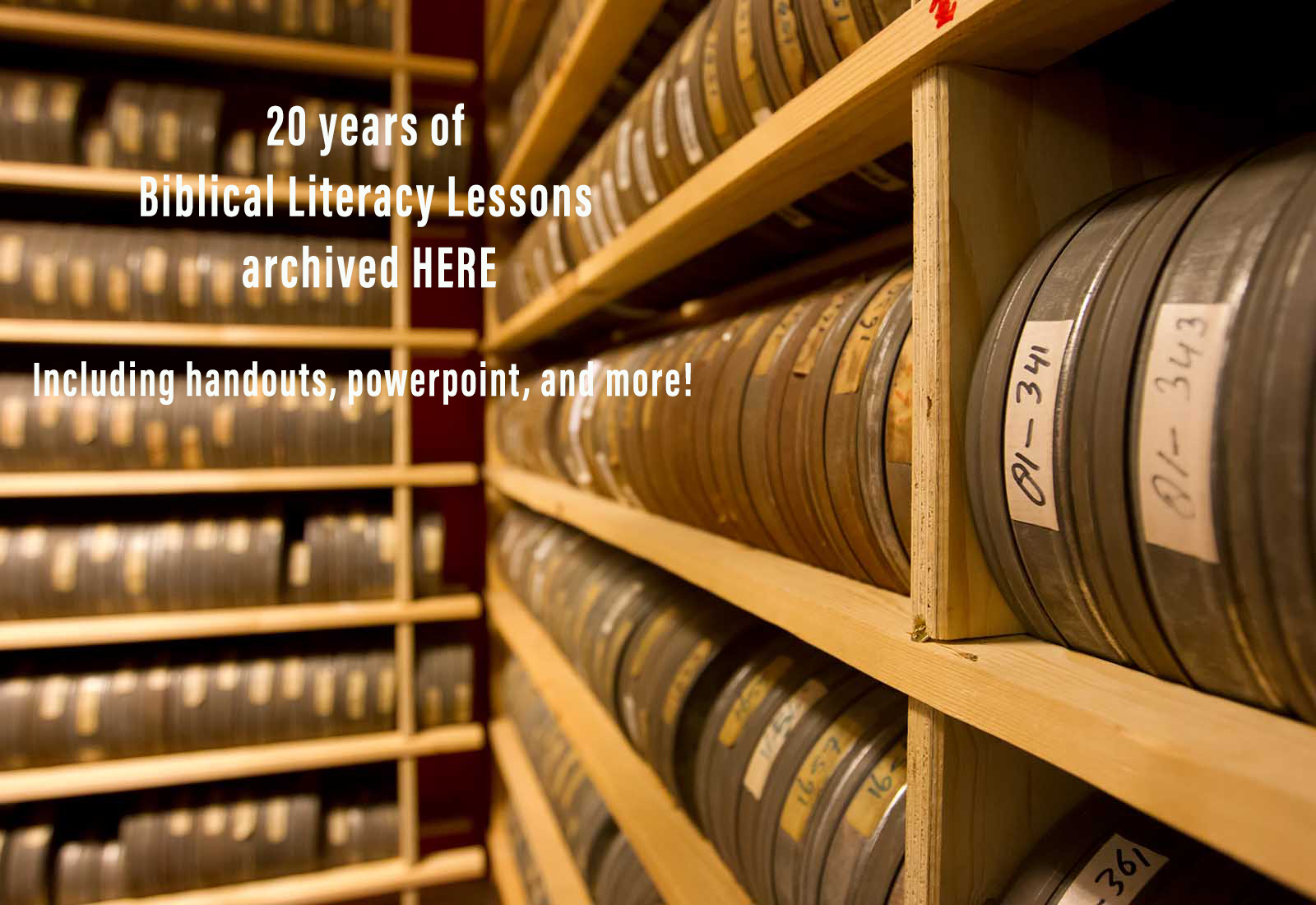| 1341 |
PWD Lesson 01 Joshua 24:23 |
01/05/2020 |
Mark Lanier |
 |
 |
 |
 |
 |
Mark began 2020 with a series titled Digging Deeply into God’s Word - Passages Worth the Dig. Mark begins with how people who don’t have a relationship with the Creator have a restless desire to fill their emptiness. Mark used Joshua 24:23 to show the challenge presented to people of Israel. Whom will they serve? Who will fill their needs? Mark discussed the writings throughout history of those who sought to explain the human need to satisfy their inner longing. These are people who either 1) find meaning in destructive behaviors 2) who fight to clean up destructive behaviors or 3) who find meaning in truly productive ways. Listen to Mark contextually dig deeper looking for truth in scripture.
KEYWORDS: Put Away, Incline Toward, Resolutions, New Year, Joshua, god, emptiness, desire, fill, serve, longing |
6 |
| 1342 |
PWD Lesson 02 Jude 5 |
01/12/2020 |
Mark Lanier |
 |
 |
 |
 |
 |
Mark, continues in the series Passages Worth the Dig with a focus on Jude. This short book was authored by Judas, a brother to Jesus. Mark contextually shows how Judas took writings current at the time to help make his point. Mark digs into verse 5 specifically and shows how different English translations based their source of original Greek New Testament writings found on either parchment or papyrus. Mark concludes that knowing Judas likely wrote “Jesus” rather than “the Lord” in verse 5 can make a difference in our lives if we consider it more deeply.
KEYWORDS: Jude, Judas, Jesus, Lord, translation |
5 |
| 1343 |
PWD Lesson 03 Roman 1:16-17 Part 1 |
01/19/2020 |
Mark Lanier |
 |
 |
 |
 |
 |
Mark continues with a third lesson in the series Passages Worth the Dig focusing on Romans 1:16-17 and a key word of “gospel”. The book Paul wrote to the church in Rome can be summarized in these two verses. Mark shares how numerous English words come from Greek roots. Translating takes work. We must use the language tools now available to have enhanced understanding of the vocabulary - 1) Look it up (lexicon), 2) Look at context, 3) Examine other usage/contrasts by author. Mark reveals the history of the church in Rome including the expulsion and return of the Jews and how these language tools can help us with an enhanced understanding of why Paul wrote to the church in Rome and what he meant by “the gospel.”
KEYWORDS: Paul, Romans, gospel, lexicon, context, usage, Jews, Greeks, Gentiles |
4 |
| 1345 |
PWD Lesson 04 Roman 1:16-17 Part 2 |
02/02/2020 |
Mark Lanier |
 |
 |
 |
 |
 |
Now that Mark had described the power of the good news, an actual historical event that Paul wants everyone to know about, Paul continues with the statement that “for in this the righteousness of God is revealed”. One has to wonder what Paul meant by that word!!! Part 2 of last week’s Romans passage concentrates on the word “righteousness". Using a quote from N.T. Wright to start the conversation, Mark defines justificiation (watch and see how well he teaches you this) and how important it is to accept the good news BEFORE you accept your justification!! God’s power is able to justify you!!!! Want to understand!!!?? Watch!!!
#NTWRIGHT #Justification #StPaul #GOODNEWS #GOSPEL |
3 |
| 1347 |
PWD Lesson 05 Roman 1:16-17 Part 3 |
02/16/2020 |
Mark Lanier |
|
 |
 |
 |
 |
Mark continued with the series, Passages Worth the Dig, Part 3 with a further study into Romans 1:16-17. Paul writes he is not “ashamed” of the Gospel. The translation of the Greek word for “ashamed” shows us Paul did not "experience a sense of loss of status” because of his belief in the Gospel. He preached Jesus died for our sins. Mark refers to other New Testament passages that point to Jesus crucified, which is contrary to Gentile Greek and Roman gods who believed a god who died for their sins was folly. Our God is just, fair, and righteous. The believer is not guilty because Jesus paid the debt in full. Mark also reviews and expands on Pauls’ use of righteousness and concludes the lesson by reciting the words to the hymn: Beneath the Cross of Jesus |
2 |
| 1348 |
PWD Lesson 06 Roman 1:16-17 Part 4 |
03/01/2020 |
Mark Lanier |
 |
 |
 |
 |
 |
|
1 |
